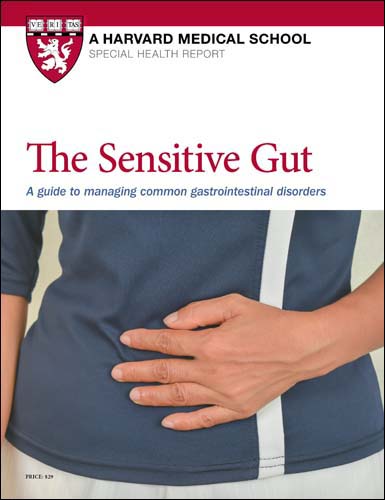What's the connection between the gut and brain health?
Ask the doctor

Q. I've heard that the bacteria and other germs that live in our intestines can affect our brain, including whether we get some brain diseases. Can that be true? If so, how does that happen?
A. It very likely is true. More than a century ago we discovered that bacteria live in our intestines, in our mouth and nose, and on our skin. Indeed, they've been doing so ever since the very first humans walked the earth. We knew that a very few types of bacteria could cause diseases of the gut. However, until the past 15 years, most doctors (myself included) assumed that the vast majority of the bacteria normally living in our gut were just freeloaders, taking advantage of the warmth and nutrients in our body to remain alive. We didn't imagine that they might affect our health.
Over the past 15 years, though, we've learned that these gut bacteria are capable of producing substances that affect the cells in our body, because some of those substances are similar or identical to substances that our own cells make.
So, how can bacteria in the gut affect the brain? Substances made by bacteria in the gut can get into the blood, just like nutrients in our food travel from the gut into the blood. Also, certain nerves connect the brain and the gut: bacteria in the gut can send signals through those nerves to the brain. Finally, gut bacteria can stimulate immune system cells in the wall of the gut, and the immune cells then can send signals though the nerves to the brain.
Research in the past decade has found that gut bacteria may influence our emotions and cognitive capabilities. For example, some bacteria make oxytocin, a hormone our own bodies produce that encourages increased social behavior. Other bacteria make substances that cause symptoms of depression and anxiety. Still others make substances that help us to be calmer under stress. (Yes, I know: I want some more of those bacteria, too.)
Finally, the gut bacteria also have been shown to influence our vulnerability to certain brain diseases, including Alzheimer's disease, Parkinson's disease, and autism. For example, a substance called synuclein, found in the brains of people with Parkinson's disease, is made by gut bacteria and can travel via nerves from the gut to the brain.
Recognizing the roles that the bacteria (and viruses and other microbes) inside us appear to play in our health, even in our personality, has been one of the most important discoveries of the past 50 years. Yet we are just beginning to understand it, and how to change the microbes within us in ways that will improve our health. It may take another 20 years, but I think we'll figure it out.
Image: © chombosan/Getty Images
About the Author

Anthony L. Komaroff, MD, Editor in Chief, Harvard Health Letter; Editorial Advisory Board Member, Harvard Health Publishing
Disclaimer:
As a service to our readers, Harvard Health Publishing provides access to our library of archived content. Please note the date of last review or update on all articles.
No content on this site, regardless of date, should ever be used as a substitute for direct medical advice from your doctor or other qualified clinician.
















